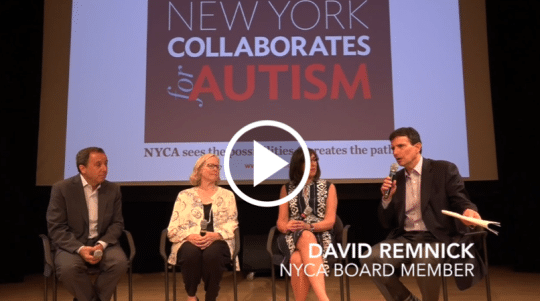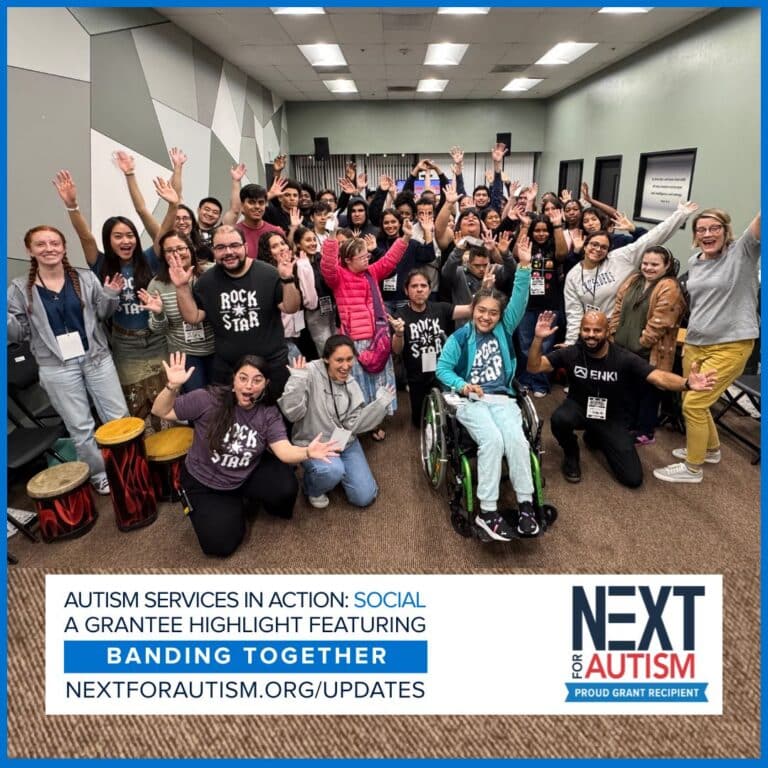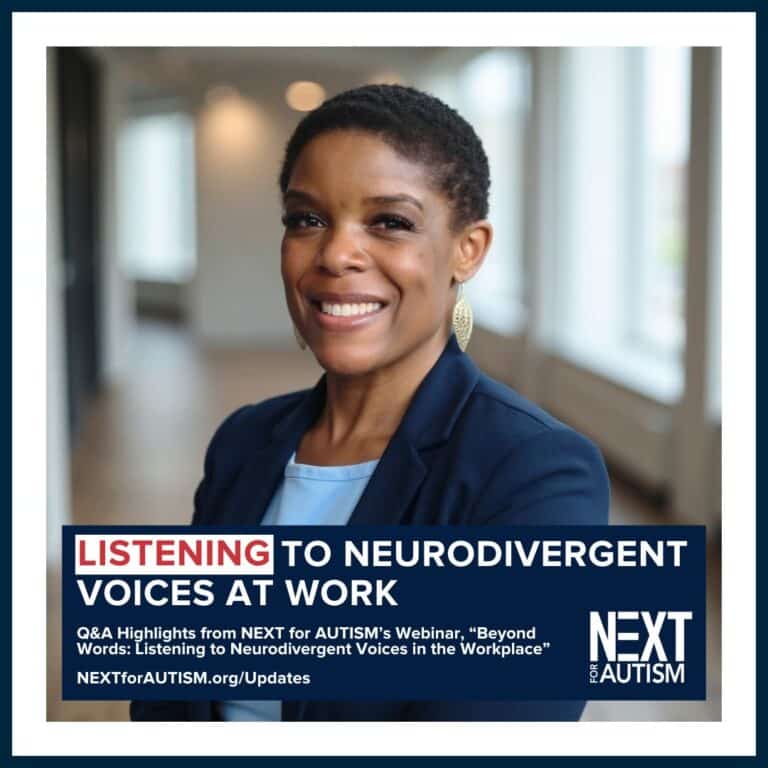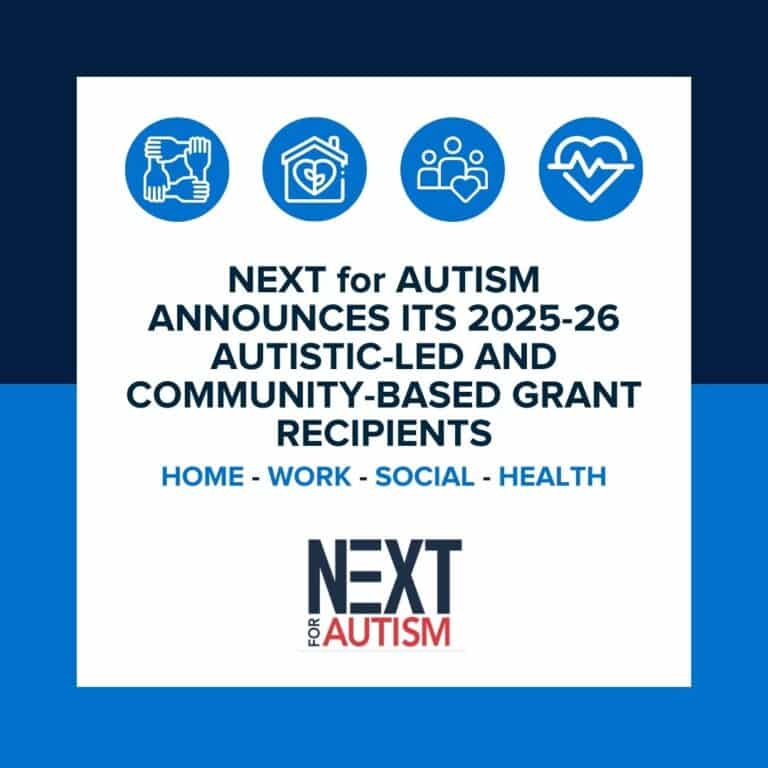NYCA recently hosted a screening of Life, Animated, an award-winning documentary film based on the book, Life, Animated: a Story of Sidekicks, Heroes and Autism, by
Ron Suskind. A panel discussion followed, moderated by David Remnick,
editor of The New Yorker magazine and NYCA board member, and featuring
Ilene Lainer, NYCA President and Co-Founder; Dr. Catherine Lord,
Director of NewYork-Presbyterian Center for Autism and the Developing
Brain; and Ron Suskind, a journalist and the father of the film’s subject.
Early in the documentary film, Life, Animated, Owen Suskind, the young man at the center of the film, explains directly to the camera what is on his mind: “It’s important that when our parents no longer can help us, we have to figure things out by ourselves.” Owen’s calm demeanor belies his true emotions about the road ahead. At twenty-three and on the autism spectrum, he is struggling with what it means to move into his own apartment within a supported independent living community.
Owen is one of approximately half a million young people who will become adults in the next decade, aging out of the social services system, yet still requiring ongoing supportive and enrichment services. For Owen, who is capable of more independence, and is supported by a loving family and team, leaving home is still a significant challenge logistically and personally. “I have to do stuff all on my own,” he tells his brother warily, “a lot of new chapters to write.” Owen’s is a coming of age story that raises critical questions about how best to support young adults on the autism spectrum to transition from home to adult living.
In the discussion after the screening, panelists reinforced the importance of creating opportunities for young people like Owen to live engaged, productive lives in their communities, with greater independence. “What young adults need most is the opportunity to do something that gives them joy,” noted Dr. Catherine Lord, Director of Center for Autism and the Developing Brain and one of the country’s foremost experts on autism. They enjoy being in a community, having a purpose and feeling accomplished, she explained. Yet right now, the type of adult living that fosters personal fulfillment and community integration is in short supply.
As a society, we’re not equipped to support adults with autism, according to Ilene Lainer, NYCA’s president. One third of young adults on the spectrum are disconnected from their communities, according to a Drexel University study. The study found that they live in isolated conditions without supportive services such as job or life skills training and post-secondary education. Housing, though an important component of independent living, is not the hardest part of solving this problem, added Ms. Lainer. Rather, it is critical support and services - teaching basic life skills such as hygiene, transportation, social interaction or work habits and job training - that could empower young adults on the spectrum to lead joyful and meaningful lives.
This is the reason that NYCA is developing its newest program, Neighborhood Network of New York, added NYCA board member David Remnick. The program will provide supportive community living services to adults to enable them to live as independently as possible, while participating in job and life skills training and community immersion opportunities. Owen’s father, Ron Suskind, concurs. What is key, he said, is to help young people like Owen to realize the lives that they so yearn for.
In the film, Owen’s first days alone did not go entirely smoothly. But over time we understand that his support system and unyielding optimism will carry him through. On his first night, we see Owen watching Bambi alone in bed, a scene that is both heartbreaking and encouraging. Though lonely, he is learning to self-sooth. On another night, we watch as Owen circles his kitchen repeatedly, mumbling Disney lines to himself in an attempt to overcome anxiety over his medication schedule. He calls his therapist and together they resolve the situation. Other setbacks arise, some are deeply hurtful, others easily solved with support. Owen eventually lands his dream job at a local movie theater. And finally, during a check-in with his mother and therapist, we see hope. “I’m a young adult now,” he tells them, “I’m like Quasimodo welcomed into society after being an outcast. “








Leave a Reply